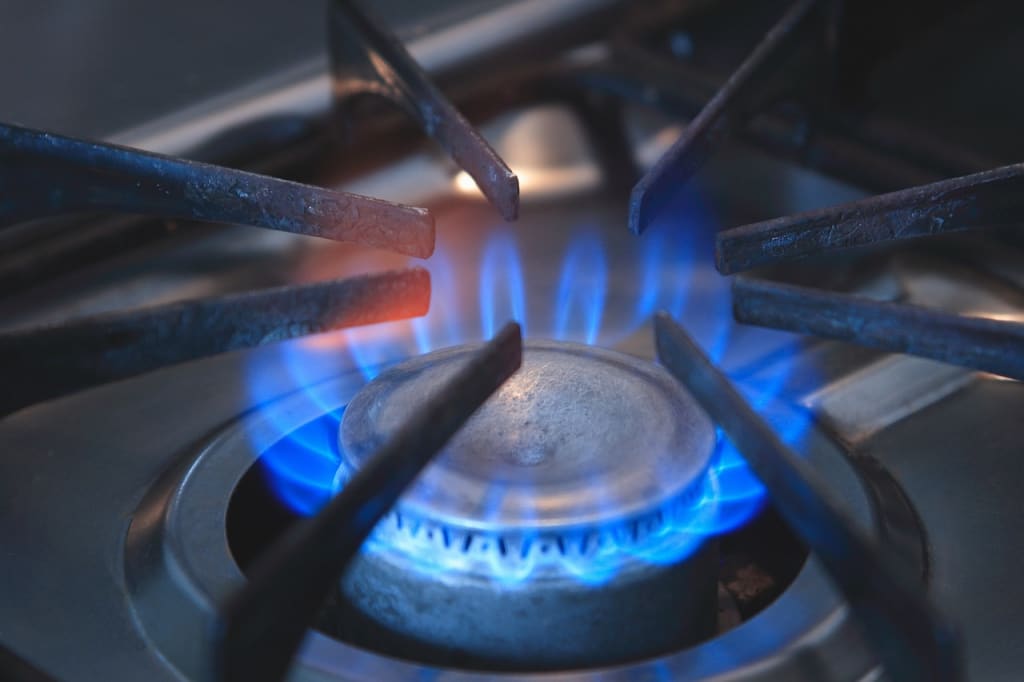Gas stoves cause benzene pollution in households, which has been linked to cancer.
The Silent Danger

There is more than just heat emanating from the burner when a gas stove's blue flame ignites. The cancer-causing substance benzene was discovered to be one of the contaminants released from stoves by Stanford University researchers.
According to the research, benzene pollution can spread throughout a home and levels of benzene can be higher than those found in secondhand smoke.
The findings add to a growing body of research demonstrating that indoor pollutants are more dangerous than homeowners of gas stoves had been encouraged to think. Additionally, it occurs at a time when the nation's continuing culture conflicts have been linked to stoves.
What scientists discovered
For the article that was published in the journal Environmental Science and Technology in 2022, Stanford scientists analyzed benzene from gas stoves in 87 homes in California and Colorado. The researchers discovered that both natural gas and propane stoves "emitted detectable and repeatable levels of benzene that raised indoor benzene concentrations in some homes above well-established health benchmarks."
Benzene is well known for its dangers. The chemical is connected to leukemia and other blood cell malignancies, according to the Centers for Disease Control and Prevention.
"Flames and other high-temperature situations, such as the flares found in oil fields and refineries, are where benzene develops. We now understand that benzene can also occur in the flames of gas burners in our homes, according to Rob Jackson. He is a professor of earth sciences at Stanford and the study's lead author.
Researchers discovered that benzene levels in a home can be higher than typical levels for secondhand smoking when one burner is set to high or the oven is set to 350 degrees. They also discovered that the toxin is not restricted to the kitchen and may spread to other areas as well, such bedrooms.
We discovered that exhaust fans were frequently inefficient at reducing benzene exposure, while good ventilation helps lower pollutant concentrations, said Jackson. This study, according to the author, is the first to examine benzene emissions from operating a stove or oven.
Researchers looked into whether cooking food—frying fish or bacon—emits benzene and discovered that the gas, not the food, was the source of all pollution. This is crucial since the gas business frequently attributes respiratory issues that can be brought on by cooking emissions to environmental concerns arising from its fuel.
There is no evidence to support the claim that using gas to cook will make someone ill. This is all about raising the risk of contracting particular ailments.
Response from the gas industry
The American Gas Association, which represents utilities that provide natural gas, frequently questions the validity of data from studies demonstrating that burning natural gas in homes can have negative health effects. The influential trade association questioned a peer-reviewed research last year that revealed gas stoves leak benzene even when they are off. A 2022 investigation that revealed 12.7% of childhood asthma cases in the U.S. can be linked to household use of gas stoves was criticized in a manner similar to this by the AGA.
In an email, the AGA stated that the study is still being evaluated. The National Propane Gas Association attempted to cast doubt on the peer-reviewed studies in a statement to NPR. The NPGA claimed that the Stanford report "fails to analyze real-world environments," and that when cooking with gas, "air quality can be managed through numerous measures, including ventilation options such as range hoods or exhaust fans."
The use of gas for cooking is being criticized by medical professionals. Because they can induce respiratory conditions like asthma, nitrogen dioxide emissions have caused the most worry. The American Medical Association warns that using gas to cook increases the risk of childhood asthma, and the American Public Health Association has deemed gas cooking stoves "a public health concern."
Gas stoves also became a topic of controversy earlier this year after Consumer Product Safety Commission (CPSC) Commissioner Richard Trumka, Jr. said that the government should consider stronger regulation of new gas stoves.
Two bills limiting new regulations on gas stoves were recently filed and passed by lawmakers in the U.S. House of Representatives, which is controlled by Republicans. The "Save Our Gas Stoves Act" is one such measure that would prevent the Department of Energy from enforcing planned range efficiency standards. A different measure known as the "Gas Stove Protection and Freedom Act" would stop the CPSC from outlawing or further restricting the sale of gas stoves. Given that the U.S. Senate and White House are controlled by Democrats, it seems improbable that either of the proposals will be passed into law.
What can you do to reduce pollution from gas stoves?
Gas utilities have long studied the interior air pollution caused by gas stoves, even creating new types of burners that use less gas and generate less nitrogen dioxide. However, producers refuse to utilize them, claiming that consumers aren't seeking them and that they are more expensive and more difficult to clean.
There are certain things you can do, though, if you're concerned about the pollution caused by cooking on a gas stove. The most obvious is to cease using gas for cooking and start using electric instead.
For both health and environmental grounds, there are campaigns in place to persuade individuals to do that. Methane, a strong greenhouse gas and the primary component of natural gas, seeps into the atmosphere across the whole gas supply chain.
Gas stoves are tied to a production and supply infrastructure that leaks the potent greenhouse gas methane during drilling, fracking, processing, and delivery. This causes pollutants to enter your home.
However, there are less expensive temporary fixes because replacing a stove is pricey. A transportable induction cooktop and other plug-in devices, such as toasters, can cut down on the time spent using a gas stove.
The climate-focused Inflation Reduction Act, passed last year, now makes government incentives available when it comes time to replace your stove.






Comments
There are no comments for this story
Be the first to respond and start the conversation.